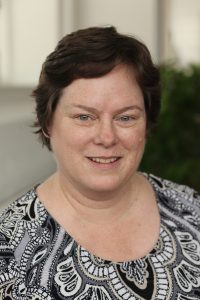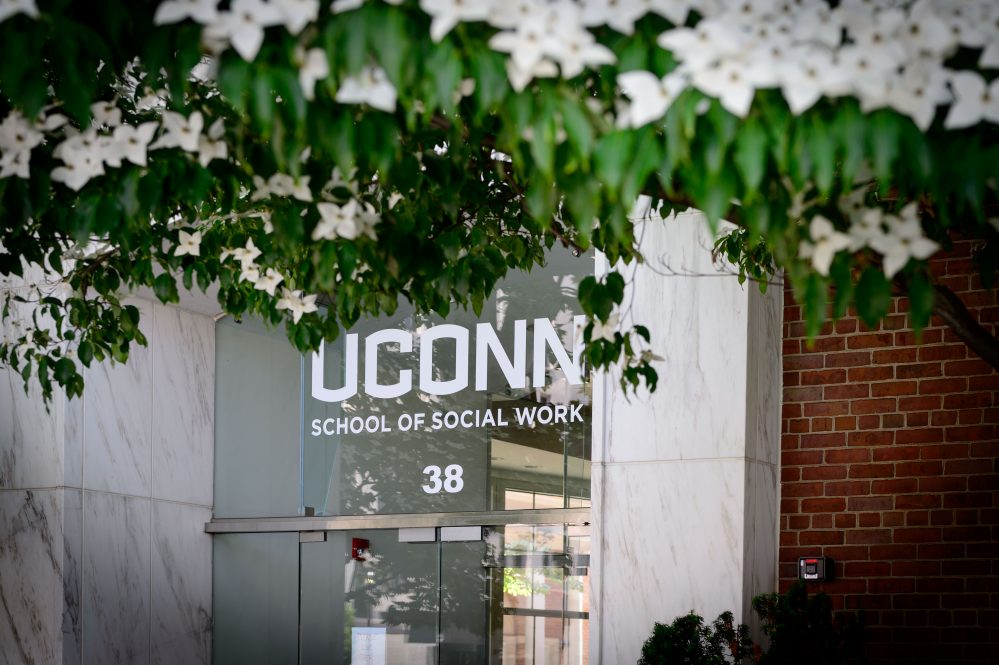UConn School of Social Work professor S. Megan Berthold has traveled around the world as far as Nepal to work with trauma survivors, but a yearlong academic Fulbright Canada Distinguished Research Chair Award at Carleton University in Ottawa, Ontario, will put her only about 400 miles to the north of Hartford.
While that’s closer than the 8,700 miles away when she was on the Thai-Cambodian border, working on the edge of a war zone, her research in Canada will be no less important.
Starting in September, Berthold will serve as the Fulbright Canada Distinguished Research Chair in Public Affairs in North America: Society, Policy, Media, at Carleton University, 2024-2025.
The prestigious award will allow her to expand on a project that began in 2017 with two social work colleagues from UConn.

“This will be a great opportunity to dig deep into my research,” Berthold says. “I also welcome the opportunity to work in a new environment. Early in my career, I worked in a few refugee camps. I enjoy working cross culturally and gaining a different perspective on the issues I care about.”
Her Fulbright is the next phase of a qualitative study that includes social work professor Kathryn Libal, director of UConn’s Gladstein Family Human Rights Institute, and associate professor Scott Harding, the School’s associate dean for academic affairs, along with several doctoral students.
Together, they’ve interviewed community sponsorship volunteers and health, mental health, and legal providers around the United States to learn about how they operate, where they excel, what challenges they face, and how community sponsorship could be strengthened.
“We originally conceived of this as a study that extends into Canada, because Canada is the global leader of these community sponsorship initiatives. Until now, we’ve had the capacity to do interviews only in the U.S.,” she says. “Fulbright Canada allows us to move our work into Canada.”
As a Fulbright Scholar, Berthold aims to determine best practices and strategies to overcome challenges faced by community sponsor groups in Canada that are supporting refugees as they resettle there. She says her work also seeks to identify whether there is effective trauma-informed coordination of care for sponsored refugees to meet their health and mental health needs and to explore in what ways the Canadian model might be applied in the U.S.
In 2015-16, she notes, many Canadians volunteered to help sponsor Syrian refugees during a time of intensive displacement from their country.
“There has been widespread support for refugees in Canada. The resettlement context in each country is unique. Canada has a very different health care system than the U.S., for example, so you can’t just replicate their exact model and expect it to work well in the U.S.,” Berthold says.
Part of her work over the next year also will include interviewing refugees who received services in Canada or were sponsored by a community group there; Libal and Harding will do the same in the U.S. That piece will add firsthand experience to their findings.
“I believe that there needs to be improvements to equip providers and volunteers with the skills to be more trauma-informed and more appropriately attend to the holistic health and social service needs of refugees and their families,” Berthold says. “Over the years, I’ve trained many professionals in that area, and I see there’s much room for improvement. That’s from my clinical experience, but I need to wait and see what our research says before drawing a conclusion.”
Berthold was a longtime mental health clinician and trauma specialist working with refugees and asylum seekers since the mid 1980s prior to joining UConn’s School of Social Work in 2011. From 1998 to 2011, she was a therapist, researcher, forensic psychosocial evaluator, and expert witness at the Program for Torture Victims in Los Angeles.
Her work has taken her to places including Nepal, Nicaragua, Thailand, and the Philippines, rural areas without running water and with cultures very different than her own.
“Those who study or are specialists in treating refugees and asylum seekers, including those who have experienced war trauma, torture, genocide, and other kinds of persecution, understand there really needs to be an in-depth and integrated approach to care. People deserve that and it’s their human right,” she says, adding, “They have a right to health. They have a right to have an adequate standard of living and to support themselves.”
She continues, “A lot of these people were fighting for democracy in their country, and they were persecuted as a result. Many of these refugees, albeit not all of them, were human rights defenders in their countries and that’s why they were targeted – because the powers that be in their country deemed them a threat.”
Read more about Berthold’s work.



